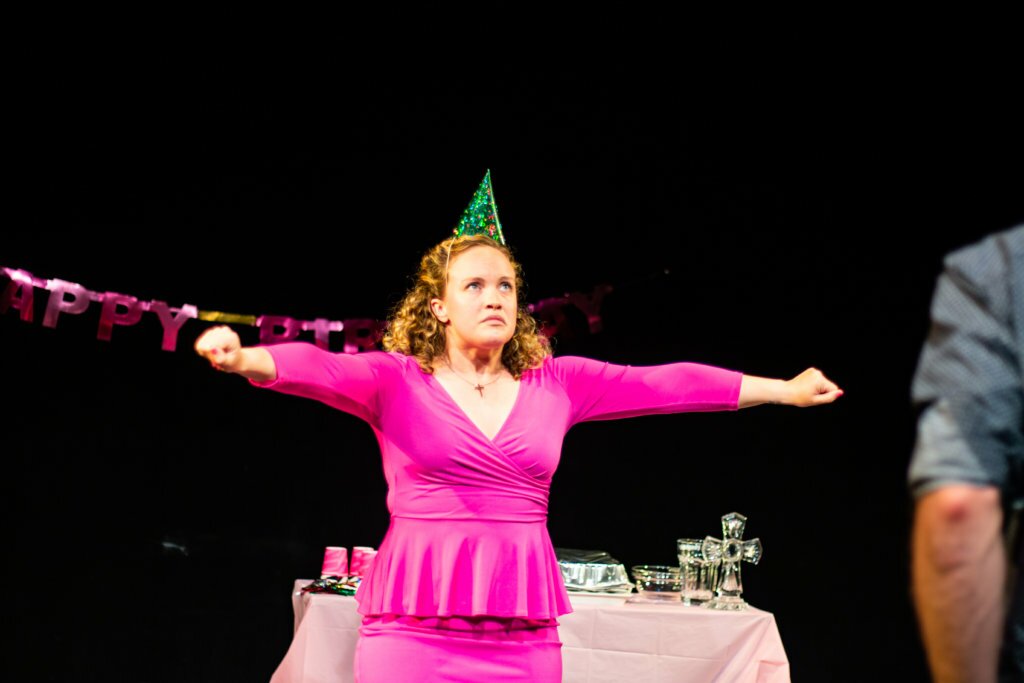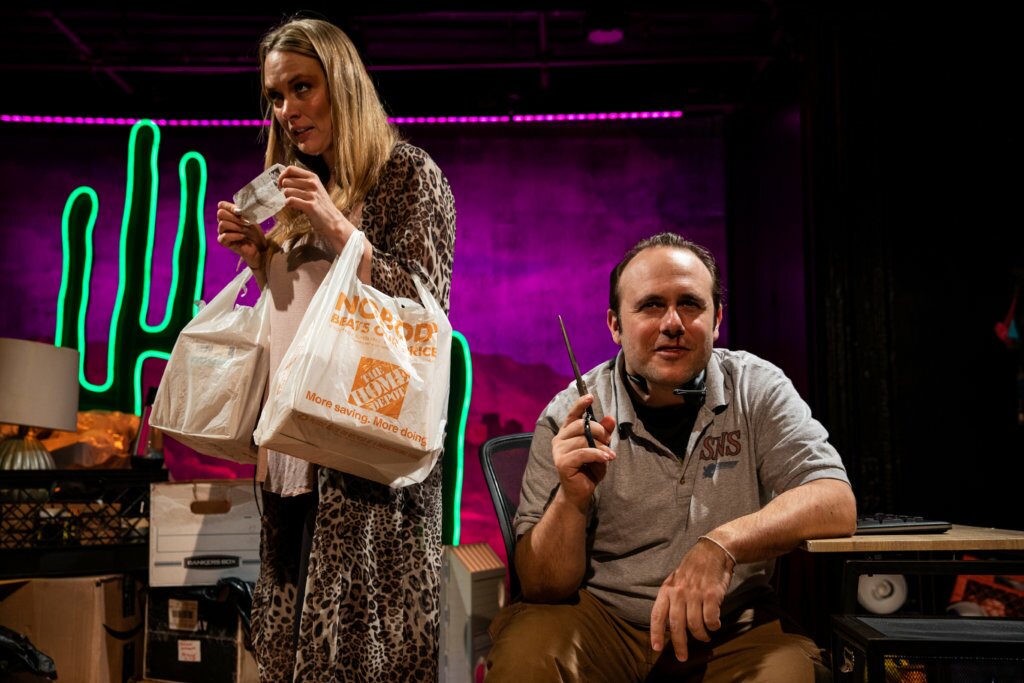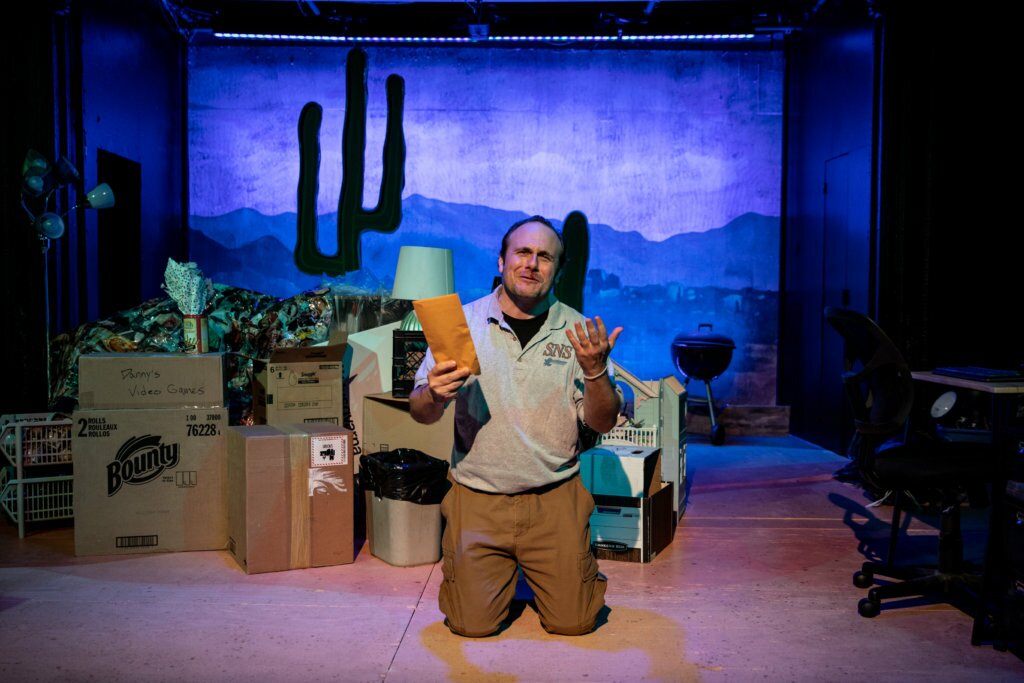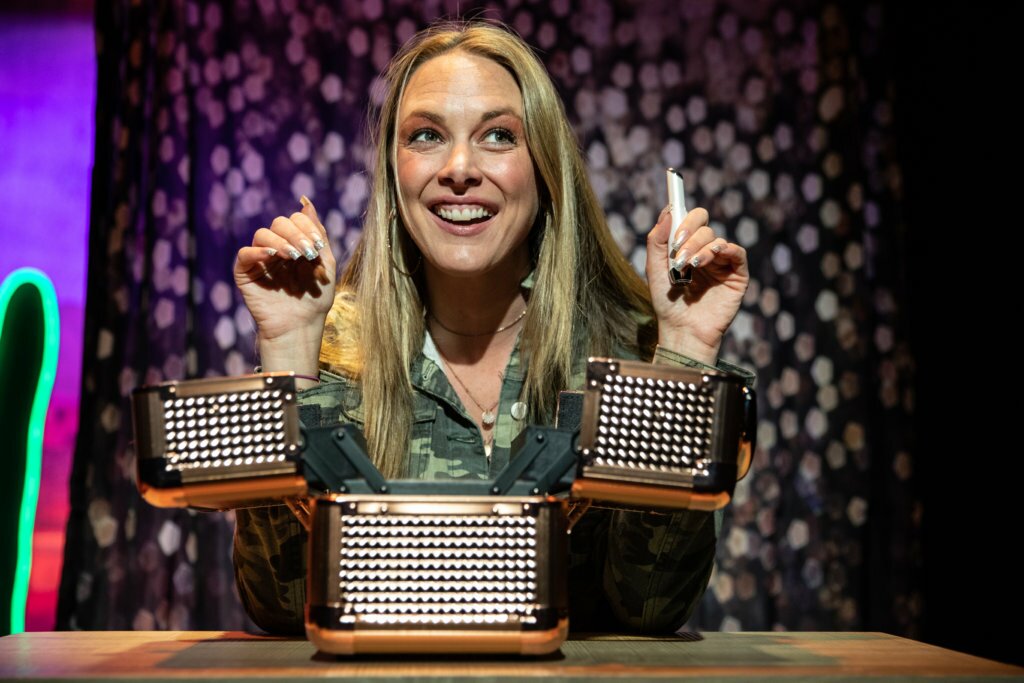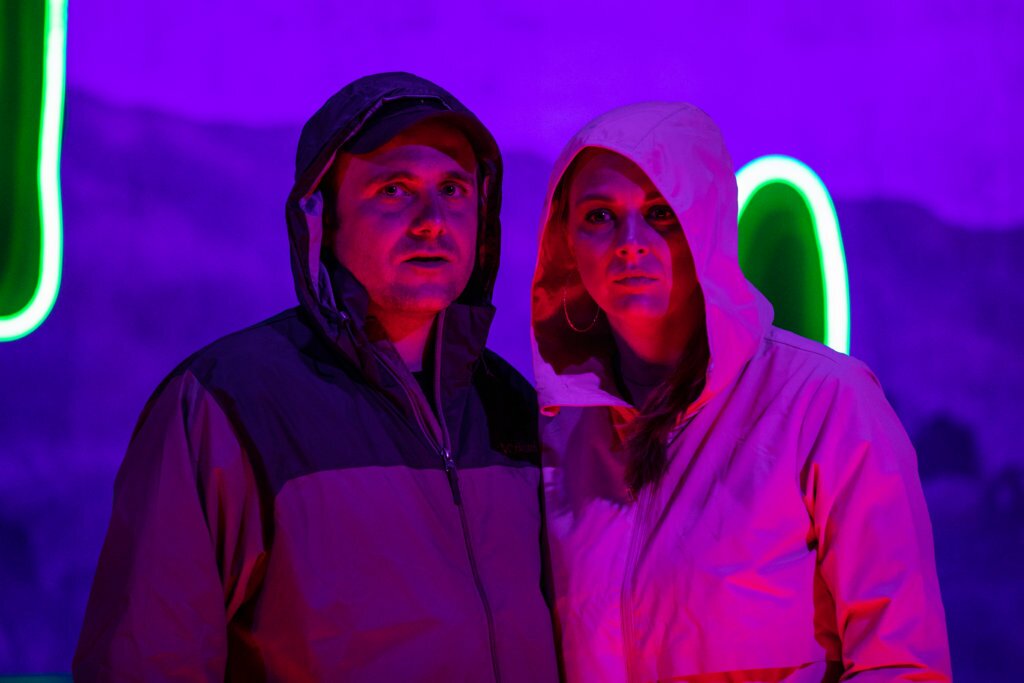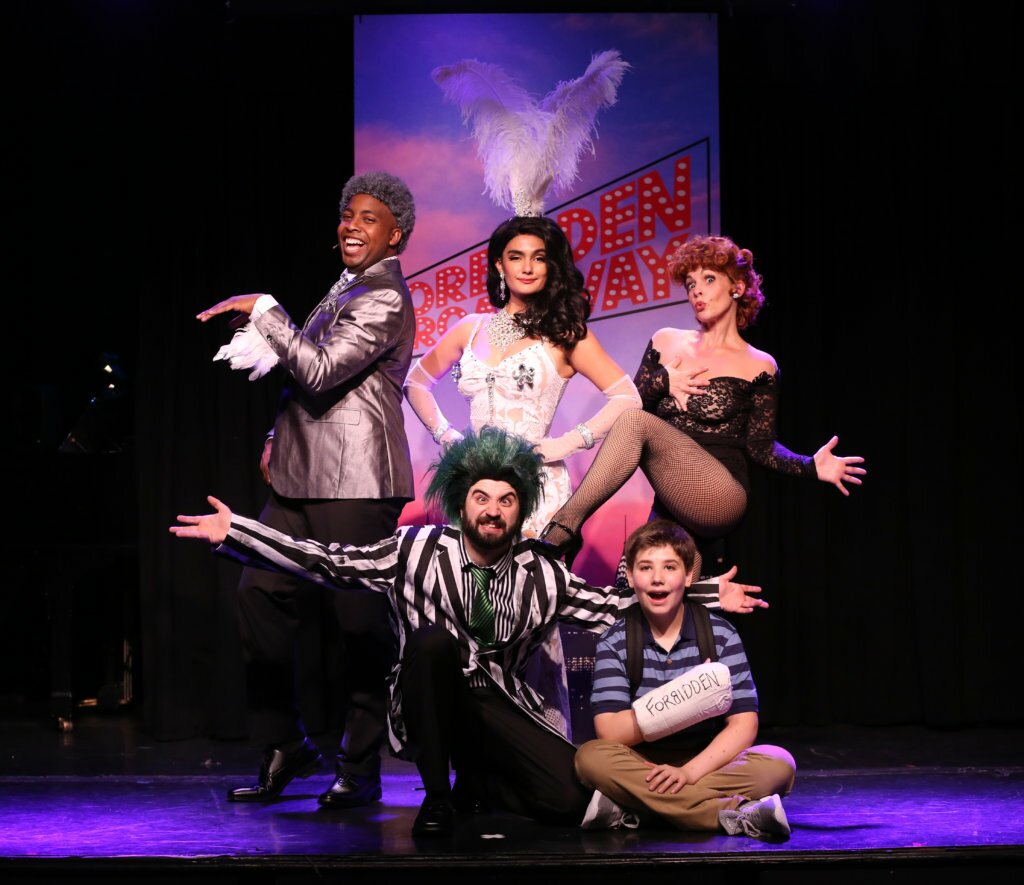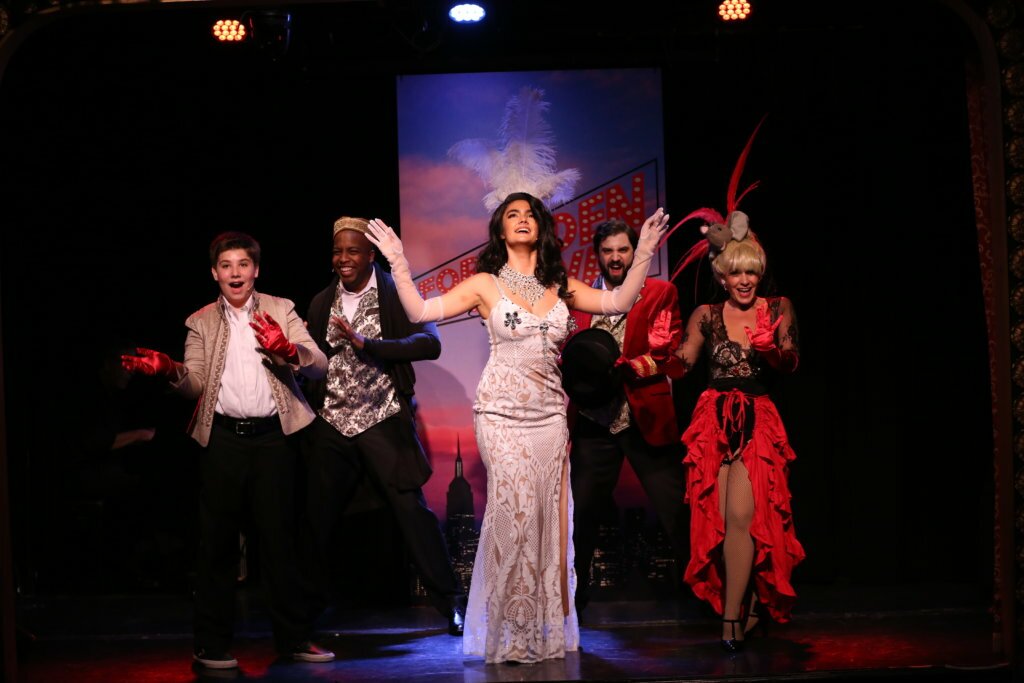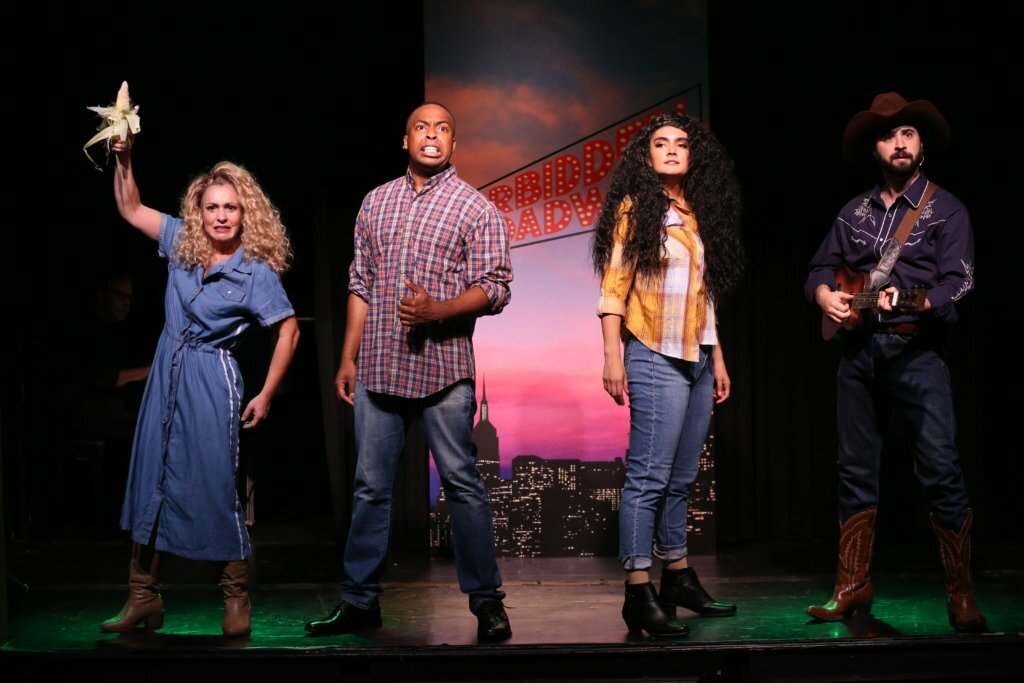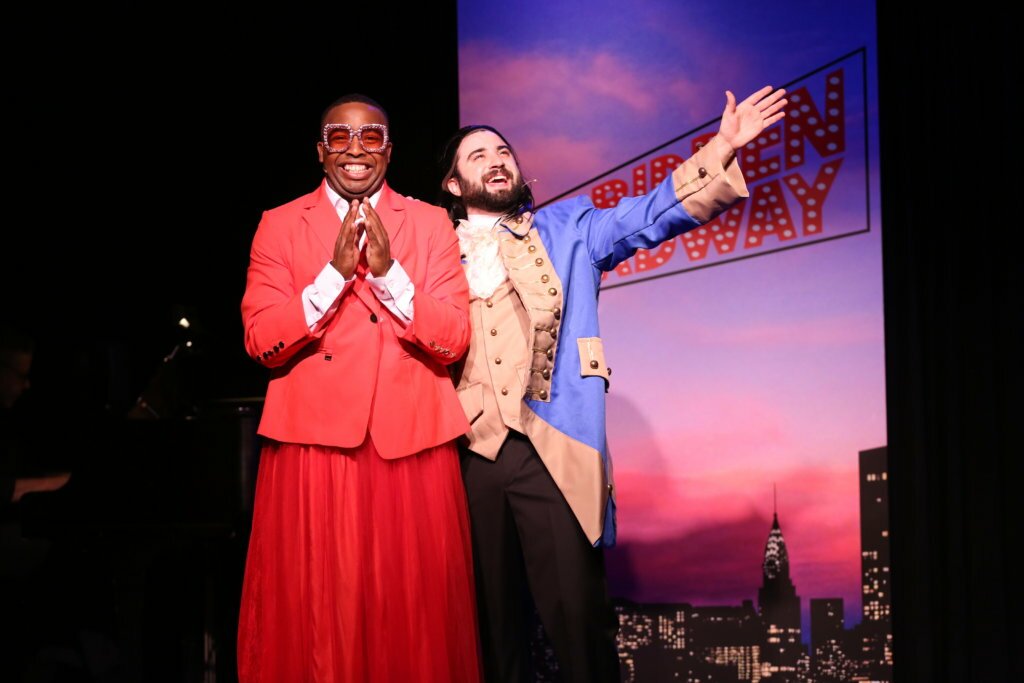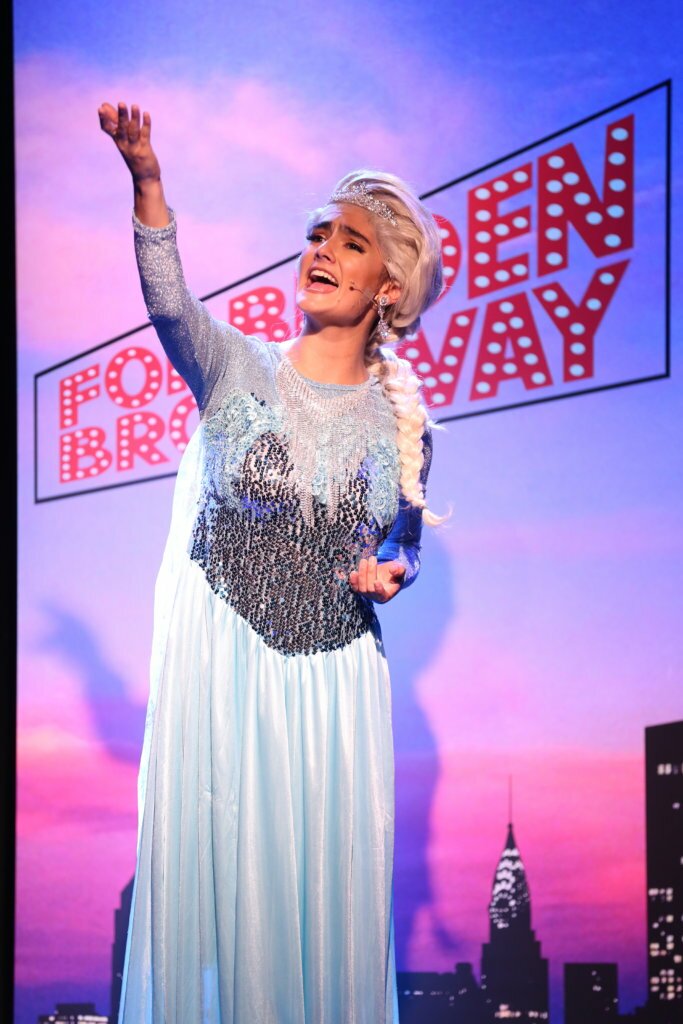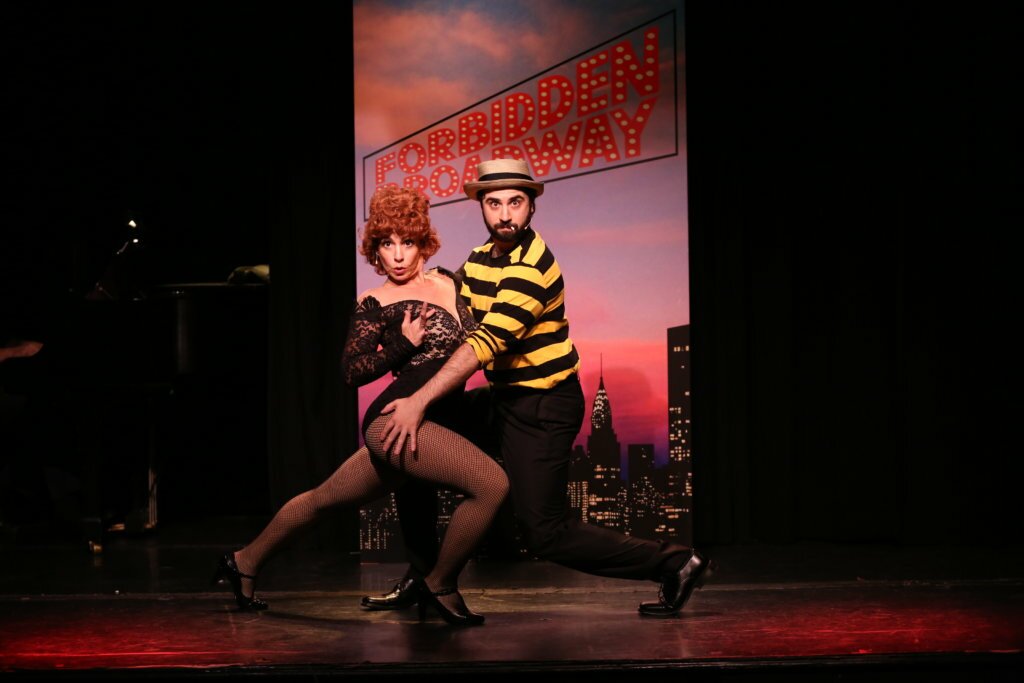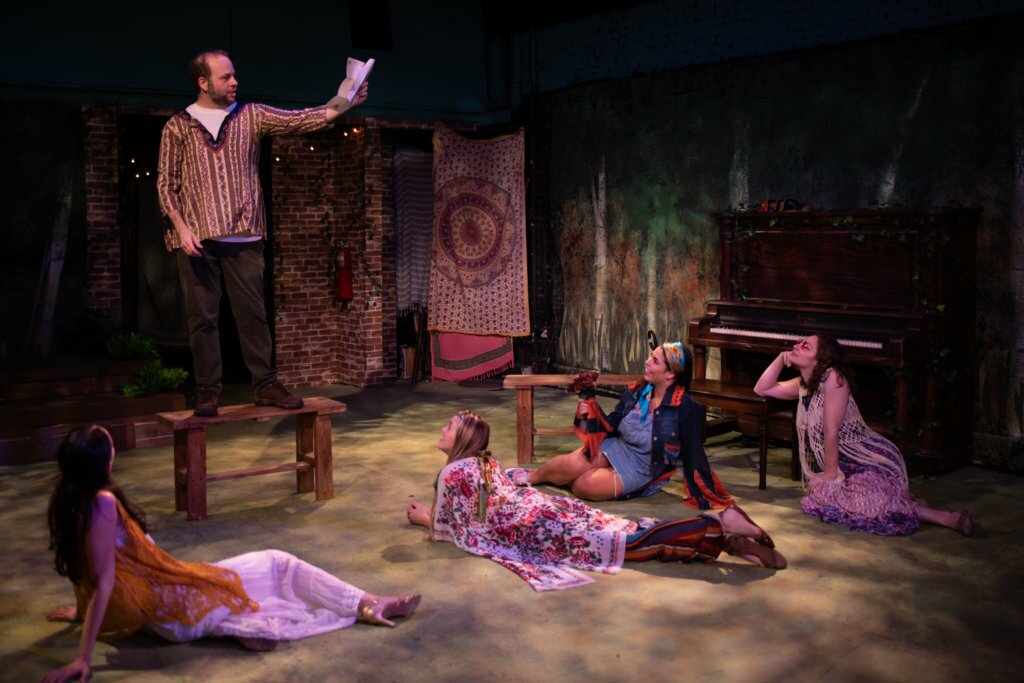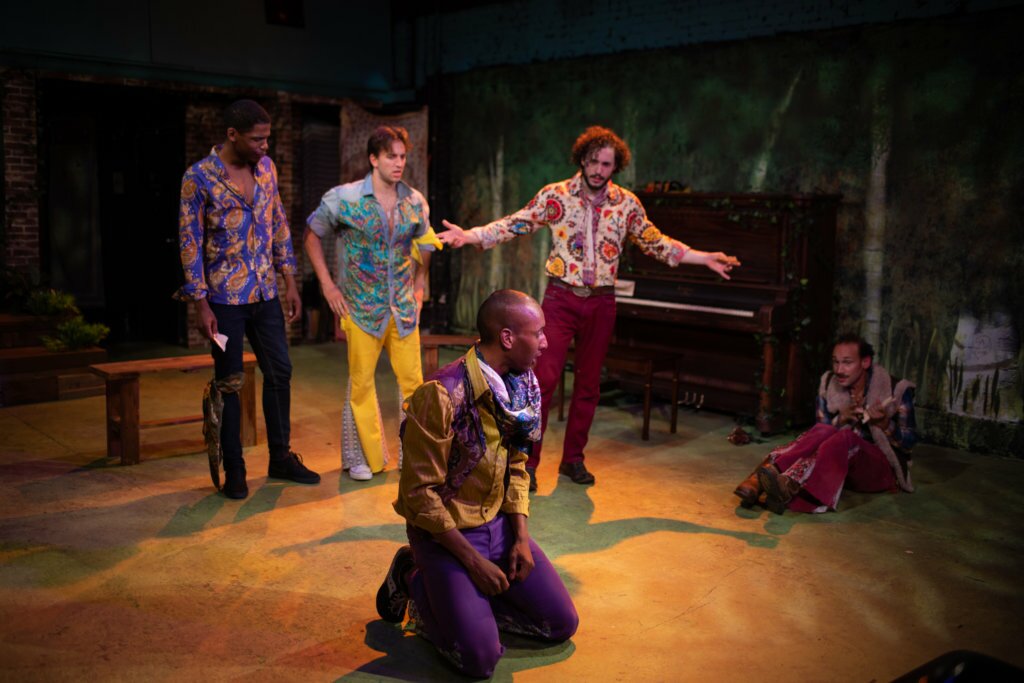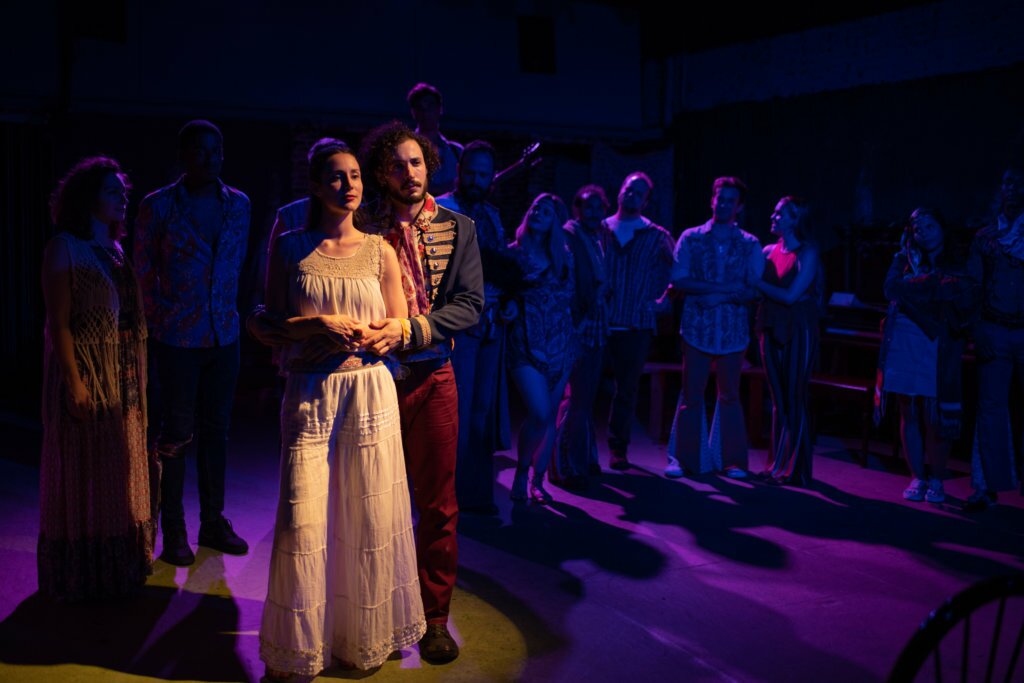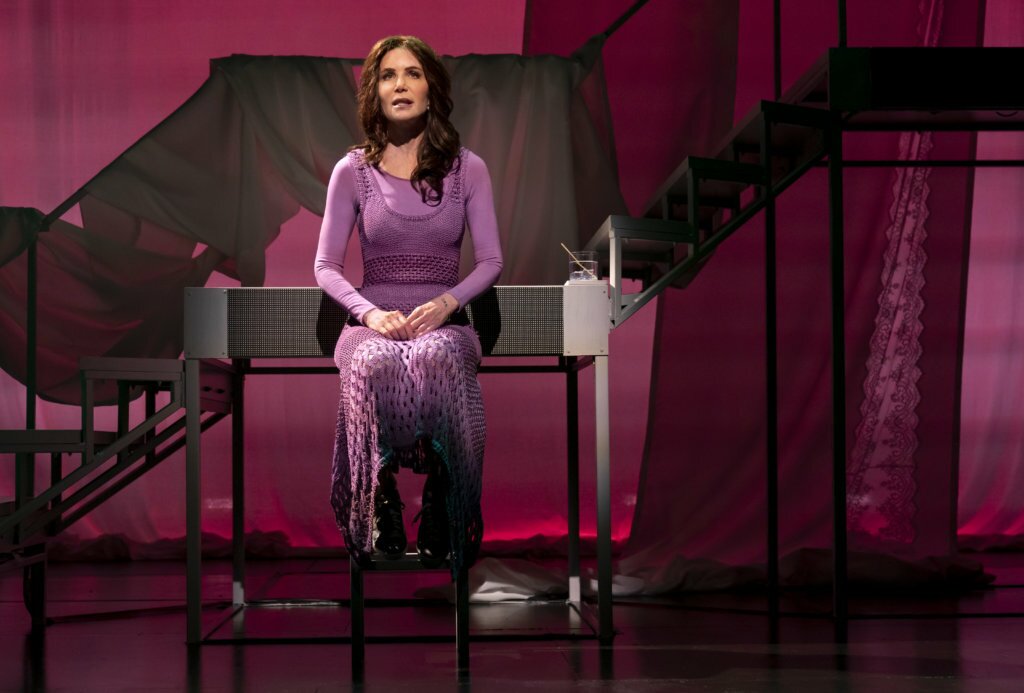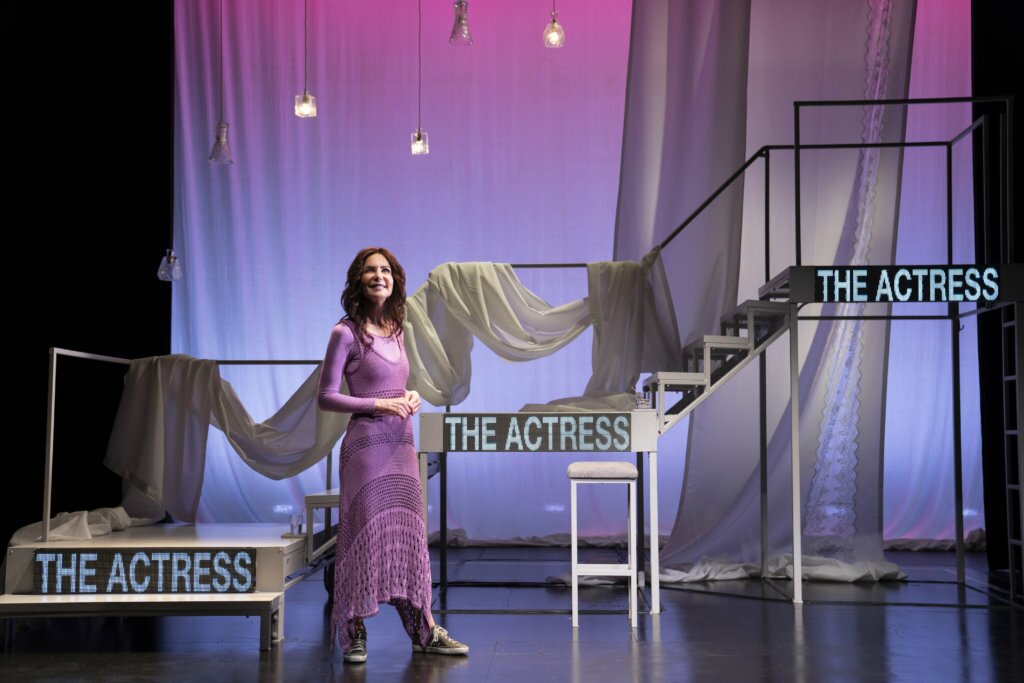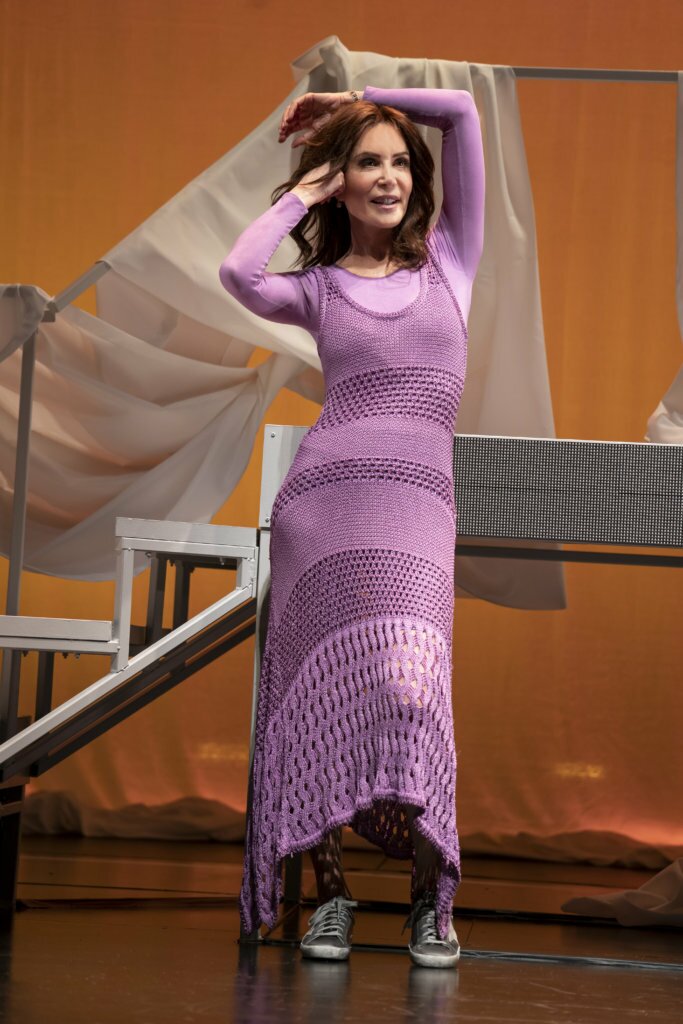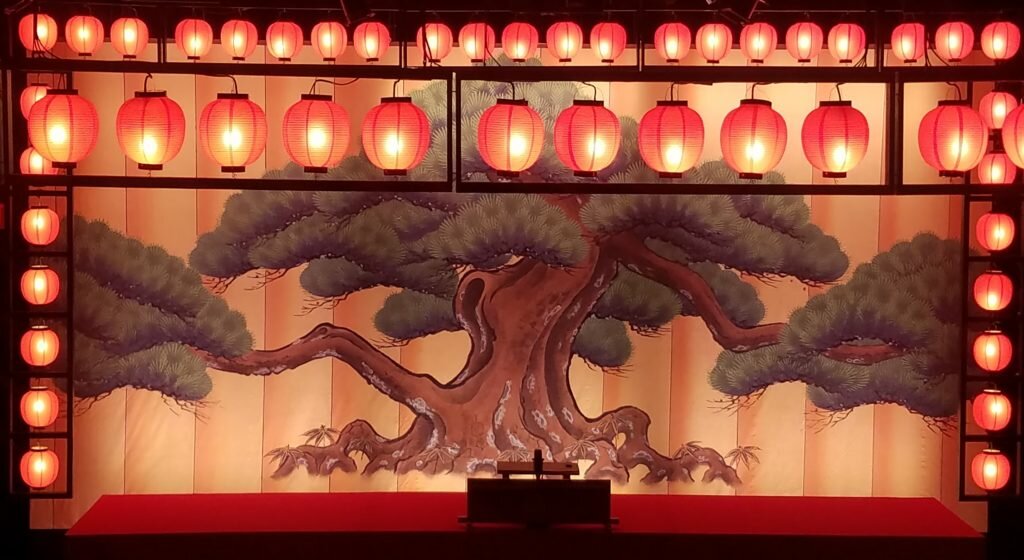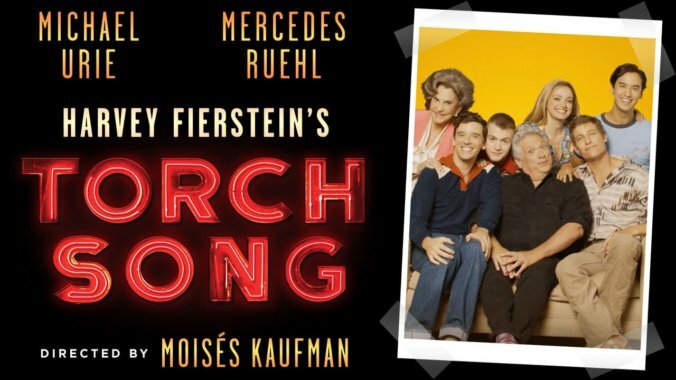
Photo by Terry Lin
A family that’s chained together does not necessarily stay together in One Green Bottle. Acclaimed Japanese playwright Hideki Noda, Artistic Director of the Tokyo Metropolitan Theatre, wrote, directed, and stars in this farce, now playing at La MaMa, in association with Tokyo Metropolitan Theatre and Noda’s theater company NODA・MAP.
One Green Bottle features an excellent international and gender-reversed cast, with the Japanese Noda as Mother (Boo), Swiss actress Lilo Baur as Father (Bo), and Welsh actor Glyn Pritchard as Pickle, their teenage daughter. Taking place over the course of one long night, all three family members have plans to go out. But who is going to stay home with their very pregnant dog, Princess? Each selfishly believes his or her own plans are more important than the others. Boo has a ticket to a concert by her favorite boy band; she never gets to go out. Bo, a well-respected theater actor, is attending a meeting he simply cannot miss. And Pickle just has to go out and meet her friends; they are discussing very important things.
It doesn’t take long for the family to fall apart over this conundrum. Secrets are revealed, arguments flare, and the family ends up staying home together anyway, just not at all like they had intended.
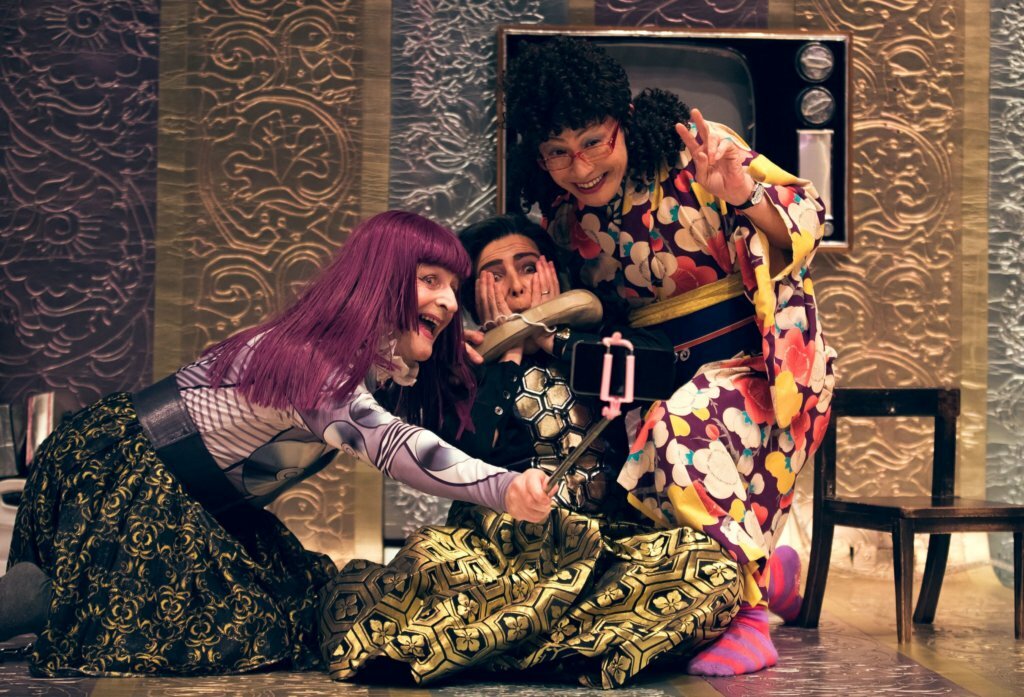
One Green Bottle, originally a Japanese play (English translation by Will Sharpe), features music based on Japanese Noh and Kabuki traditions (Genichiro Tanaka) that does a good job of underpinning the various ebbs and flows of the story. Not being too familiar with Noh and Kabuki, it’s unclear to me whether Noda is employing these traditions in the play. I will say that it has a very specific style, with melodramatic dialogue, and a lot of broad physical and slapstick humor. Noda also plays with the concept of time, where sometimes moments are slowed down and sometimes you’re not quite sure how much time has passed.
The set (Yukio Horio) plays an important role as the house, through a series of increasingly absurd events, slowly deteriorates along with the family. The costumes (Kodue Hibino) are also interesting. Pickle wears more modern clothes in stark contrast to the kimono worn by her parents, suggesting she is aching to break free from traditional molds.

What makes One Green Bottle work so well is that it’s not all ruthless backstabbing. Yes, it’s a lot of fun watching this dysfunctional family unravel. But at their most vulnerable moments of desperation is when some honest moments emerge, and real tenderness can be felt.
One Green Bottle is playing through March 8, 2020 at The Ellen Stewart Theatre, La MaMa Experimental Theatre Club.
